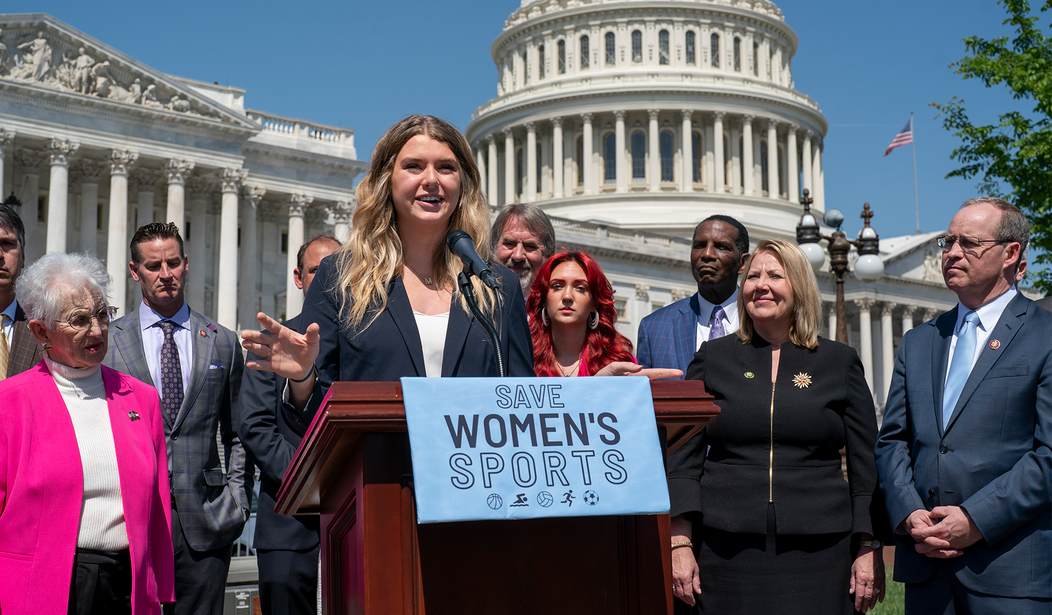The Georgia state Legislature has passed Senate Bill 1, a measure that prohibits transgender student-athletes from participating in girls' and women’s sports. The bill, commonly referred to as the "Riley Gaines Act," now awaits the signature of Republican Governor Brian Kemp, who is expected to approve it. This legislation, which passed with significant support from both Republican and some Democrat lawmakers, mandates that sports participation be determined strictly by a student's biological sex at birth.
Last August @Riley_Gaines_ and four other brave women testified before our Senate special committee on protecting womens’ sports advocating for female athletes all across Georgia.
— Senator Greg Dolezal (@dolezal4senate) April 1, 2025
Today, we sent the Riley Gaines Act to @BrianKempGA’s desk, protecting women’s’ sports in Georgia pic.twitter.com/wdtYsmhx8Z
Senate Bill 1 clearly defines male and female based on reproductive biology. Under this law, students will be classified as male or female according to their ability to produce "human sperm" or "human ovum." In addition to restricting participation in sports, the legislation also regulates access to multi-occupancy facilities such as locker rooms and restrooms.
The bill passed in the Georgia House by a vote of 100-64, with three Democrats joining Republicans in support of the measure. It was good to see bipartisan support for this matter in Georgia. Unlike some other states where Democrats control the majority in the legislature and oppose banning biological men from competing in women's sports, the three Georgia Democrats who joined the Republicans in passing this legislation should be applauded for having common sense.
For the Democrats who opposed this legislation, is this not about women's rights? Or are women's rights only talked about when it comes to abortion? It is shameful that there are politicians who don't see anything wrong with thwarting women's sports because they somehow believe it scores them political points.
For decades, Title IX has provided female athletes with the chance to compete on a level playing field. Allowing biological men to enter women’s competitions undermines that progress by putting female athletes at a disadvantage. Men, on average, have greater muscle mass, bone density, and physical endurance than women. These biological advantages cannot be erased by hormone therapy or personal identification, which is why separating sports by gender has always been the standard.
In 2022, the Lia Thomas incident became one of the most high-profile controversies in women's sports. Thomas, a biological male who previously competed in men's swimming, "transitioned" and joined the University of Pennsylvania's women’s swim team. In 2022, Thomas won an NCAA championship in the 500-yard freestyle, beating top female swimmers, including Olympic medalists.
Lia Thomas spent 21 years of his life as a man.
— American Principles 🇺🇸 (@approject) March 18, 2022
He started competing against women in swimming this year and became a national champion.
Our daughter’s sports are not a plan B for failed male athletes.
pic.twitter.com/Lbtos3Ut6g
Additionally, some female athletes expressed discomfort with Thomas using the women’s locker room, but school officials dismissed their concerns. The controversy highlighted a broader debate over the balance between inclusion and fairness in sports, with many arguing that biological males competing in women’s divisions undermines Title IX protections for female athletes.
Governor Brian Kemp (R-GA) is expected to sign Senate Bill 1 into law in the coming days. Once enacted, the law could face immediate legal challenges, potentially leading to another courtroom battle over biological men competing in women's sports.
As this debate continues, it is clear that this issue will remain a flashpoint in American politics. With more states adopting similar policies and federal courts weighing in on their legality, the fight over this issue is far from over.
As of today, common sense prevailed in Georgia.














